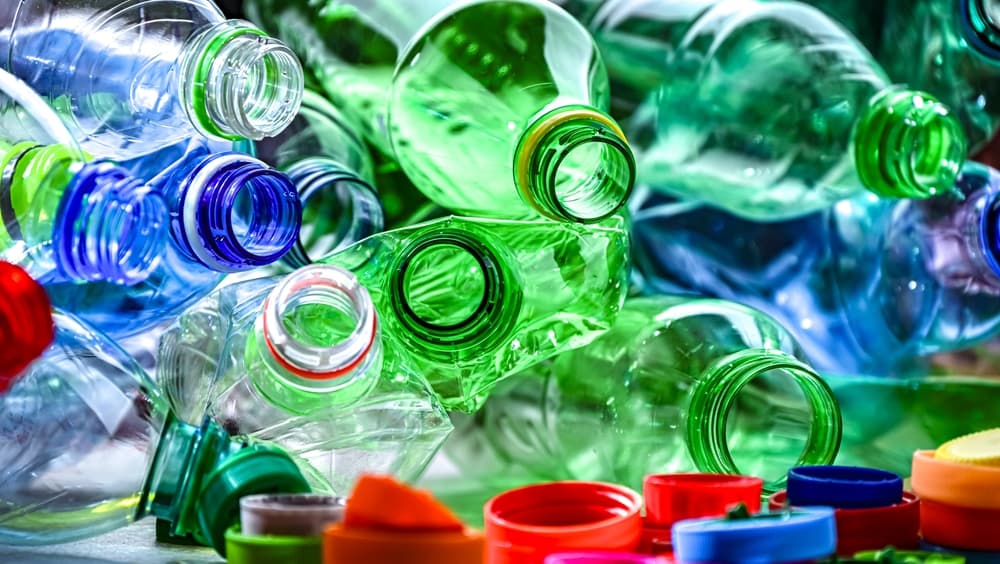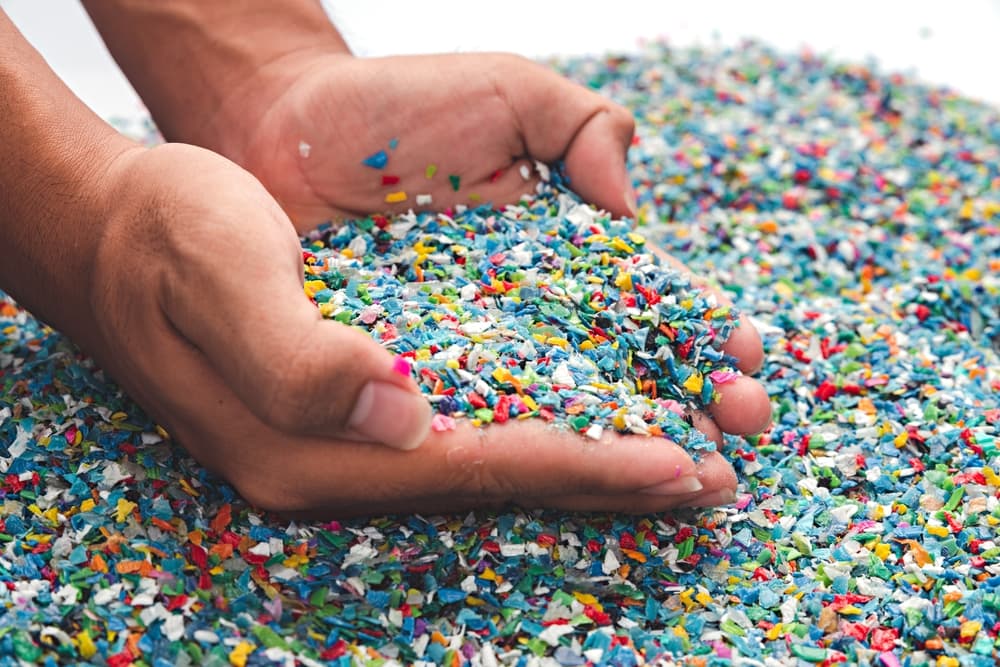Sustainability in plastics has become a measurable transformation driven by data, innovation, and accountability. Lifecycle analysis (LCA) provides the clearest lens for evaluating the real environmental costs of materials. When comparing recycled and virgin plastics, LCA reveals a consistent story: recycled materials significantly reduce carbon emissions, energy use, and waste generation across the value chain.
As industries shift toward circular systems, understanding the environmental trade-offs of recycled versus virgin plastics is crucial for manufacturers, converters, and brand owners alike. Below, we explore the measurable impacts across production, energy, and carbon, and how Tradepro is helping customers make meaningful progress toward a lower-carbon future.
Carbon Footprint Comparison: Recycled vs. Virgin Production
Lifecycle assessments consistently show that recycled plastics generate far lower greenhouse gas (GHG) emissions than virgin resins. The reason lies in the origin of each material.
- Virgin plastic starts with petroleum extraction, refining, and polymerization, all energy-intensive stages that emit significant CO₂.
- Recycled plastic, on the other hand, begins with post-consumer or post-industrial waste. Collection, cleaning, and reprocessing require less energy and fewer resources, producing substantially less carbon per ton of material.
Measurable Differences
The U.S. Environmental Protection Agency (EPA) reports that recycling HDPE and PP can lower lifecycle emissions by 40%–60%, depending on regional energy mixes and collection efficiency.
| Material | Emission Reduction (Recycled vs. Virgin) |
| PET | 50–70% |
| HDPE | 45–60% |
| PP | 40–55% |
| PVC | 35–45% |
While numbers vary by region and technology, the trend remains consistent: recycling conserves energy and reduces dependency on fossil fuels, directly supporting global decarbonization goals.
End-of-Life Matters
Recycled plastics not only reduce production emissions—they also divert waste from landfills and incinerators. Each ton of recycled PET, for instance, can prevent roughly 1.5 tons of CO₂-equivalent emissions, combining both avoided virgin production and reduced disposal impacts.
By integrating recycled resin into product manufacturing, companies help close the loop and move toward a truly circular economy where materials maintain value throughout their lifecycle.
Energy Savings in Plastic Recycling Processes
Virgin plastic production relies heavily on the extraction and refinement of crude oil or natural gas. These stages consume vast amounts of energy, particularly in cracking hydrocarbons into monomers. In contrast, recycling skips extraction and polymerization altogether.
Reprocessing plastic waste, via mechanical or chemical recycling, uses 30% to 70% less energy than manufacturing new polymers. Mechanical recycling, the most common method, involves grinding, washing, and re-melting plastics, a process that requires significantly less fuel and heat input.
Technological Advances Improving Efficiency
- Closed-loop recycling systems: These reduce transportation energy and material loss by integrating collection, sorting, and reprocessing at a single site.
- Infrared sorting technology: Improves material purity and reduces contamination, minimizing rework and wasted batches.
- Chemical recycling innovations: Although more energy-intensive than mechanical methods, modern depolymerization processes are becoming cleaner and more efficient, enabling high-quality resin recovery for demanding applications such as food packaging.
- Heat recovery and renewable integration: Many recyclers are incorporating waste-heat recovery and solar power to further minimize process emissions.
A System-Level Impact
When scaled across industries, energy savings from recycling can be profound. Analysts estimate that replacing half of all virgin plastic production with recycled feedstock could reduce global energy consumption in plastics manufacturing by more than 25%—a major contribution to achieving climate targets.

Tradepro’s Commitment to Reducing Environmental Impact
As demand for sustainable materials accelerates, Tradepro is playing a key role in helping manufacturers and brand owners transition to a circular economy built on transparency and efficiency.
We supply high-quality recycled plastics, such as recycled PET (rPET), HDPE, and PP, sourced from certified partners and verified for content accuracy. Through advanced traceability systems, including molecular tagging technology, the company ensures each batch meets performance and compliance requirements while proving its recycled origin.
Collaborating for Circular Progress
We partner with recyclers, converters, and end-use brands to design systems that minimize waste and maximize reuse. This includes:
- Supporting clients in integrating recycled feedstock into packaging and product lines
- Offering guidance on material compatibility, performance, and certification standards
- Participating in industry collaborations focused on advancing recycling infrastructure and policy development
Building a Low-Carbon Future, One Resin at a Time
The science is clear: recycled plastics dramatically lower greenhouse gas emissions and conserve energy compared to virgin production. Lifecycle analysis proves that every ton of recycled resin helps cut carbon, reduce waste, and conserve finite natural resources.
Tradepro will continue to stand at the forefront of this transformation, combining verified recycled content, process transparency, and innovation to redefine how the plastics industry approaches environmental responsibility. Through partnerships, data-driven insights, and a steadfast focus on material efficiency, progress is measurable, scalable, and essential for a cleaner planet.

